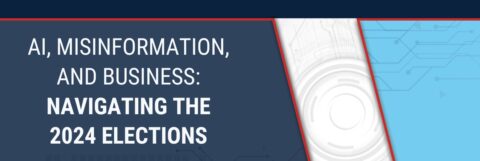Badanes admitted that it is still challenging to immediately identify AI-created misinformation. However, everyone can take some key steps that are similar when assessing other online scams: always take caution and check in with yourself if any strong emotions occur when coming across questionable content.
“It does go back to a healthy skepticism of what you’re seeing online,” Badanes said. “If you see something that gives you a very emotional reaction or [leans] into a narrative that you’re already inclined to believe … before assuming it’s true … just take a moment to ask: Could this have been AI-generated?”
Throughout the conversation, both Badanes and Benson also stressed the importance of citizens seeking information from authoritative sources and trusted election officials. They discuss Microsoft’s “Check Recheck Vote” campaign, which encourages people to double-check the sources of information they come across, especially if it strikes as odd.
“Go to the trusted source,” Badanes said. “Make sure you’re looking to your election officials. Make sure you’re looking to those in your community, who you can trust to send accurate information.”
Despite the startling dark realities of AI, Badanes admitted her optimism for the future of AI usage, citing the innovation and creative uses of the technology to encourage voter registration and participation worldwide.
“I’ll say this is an area that, frankly, as we went into this global election cycle, the U.S. kind of caps off a year of global elections where billions of people have voted,” she said. “And there’s been a lot of concern about how AI may be used, particularly by adversaries, to disrupt that process, and the good news is that it doesn’t look like it’s been super impactful yet.”

